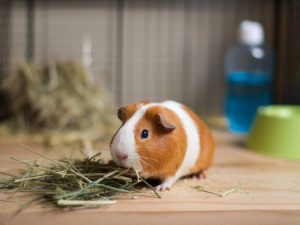The impact of vegetarian diets on dog health: studies and veterinary opinions

the impact of vegetarian diets on dog health: studies and veterinary opinions
The Basics of Vegetarian Diets for Dogs
When it comes to canine nutrition, the evolution of dog dietary habits has sparked interesting debates. Dogs are naturally omnivorous, and their bodily needs have long been associated with a balanced intake of animal proteins. However, with changing lifestyles and growing concerns about meat production’s environmental impact, some pet owners are exploring vegetarian diets as a healthful alternative for their furry friends.
Understanding what a vegetarian diet entails is crucial. A purely vegetarian diet excludes any form of meat, fish, or animal-based ingredients, relying instead on plant-based foods to supply essential nutrients. While it’s more common for cats to adhere strictly to carnivorous diets due to their protein needs, dogs have more dietary flexibility. This has opened pathways for exploring plant-based nutrition options for them.
Key Nutrients for Dog Health
Ensuring a well-rounded nutrient profile is vital in maintaining a dog’s overall health. Here are some key nutrients that need attention when formulating vegetarian meals for dogs:
- Protein: Essential for muscle development and repair. It can be derived from legumes, tofu, and certain grains like quinoa.
- Amino Acids: Taurine and L-Carnitine are particularly critical, as their deficiency can lead to heart and muscle issues.
- Vitamins: B vitamins, especially Vitamin B12, which is predominantly found in animal products.
- Minerals: Calcium and phosphorus for bone health, often supplemented through fortified plant milks or specific vegetables.
- Fatty Acids: Omega-3 and Omega-6, which are pivotal for skin health and brain function, can be sourced from flaxseeds and chia seeds.
Recent Studies and Findings
Research on vegetarian diets for dogs is still in its nascent stages, but some studies have shed light on the potential outcomes of such diets. A 2020 study published in the journal BMC Veterinary Research evaluated the health effects of plant-based diets on a sample of domesticated dogs. Participants noted improved coat health, fewer cases of obesity, and stable digestive patterns.
However, the study also revealed areas of concern. A minor proportion of dogs showed signs of nutrient deficiencies, particularly in amino acids such as taurine. This aspect suggests the importance of careful dietary planning and potentially, supplementation.
Veterinary Opinions on Vegetarian Diets
Veterinarians hold diverse perspectives when it comes to vegetarian diets for dogs. A growing number of vets acknowledge the potential benefits, especially in dogs with specific health conditions like obesity or certain food allergies. They argue that with the right guidance and nutritional balance, vegetarian diets can be safe and beneficial.
Conversely, many veterinarians advise caution, emphasizing the importance of comprehensive dietary planning. Dr. Jenna Morris, a renowned veterinary nutritionist, highlights, « While dogs can survive on a vegetarian diet, thriving requires meticulous assurance of complete and balanced nutrition. »
Potential Health Benefits
Introducing a vegetarian diet to your dog might offer several health benefits:
- Weight Management: Plant-based foods generally have lower calorie content, aiding in weight management.
- Allergy Mitigation: Dogs with specific meat allergies might find relief with plant-based alternatives.
- Improved Digestion: The fiber content in plant-based diets can promote better digestion and stool consistency.
Challenges and Considerations
Adopting a vegetarian diet for your dog isn’t without challenges. Here are some critical considerations:
- Nutrition Balance: Ensuring a complete nutrient profile is vital. Supplements may be necessary to fill gaps, especially for amino acids and B vitamins.
- Regular Vet Check-Ups: Routine health checks can monitor potential deficiencies or health issues, allowing timely interventions.
- Individual Variation: Every dog is unique, and responses to diet changes can vary. Carefully observe any behavioral or physical changes post-switch.
Steps Toward a Healthy Vegetarian Diet
If you decide to transition your dog to a vegetarian diet, here are steps to take to ensure their health and well-being:
- Consult a Veterinarian: Discuss the plan with a trusted vet who can provide personalized advice and recommend reputable supplements if needed.
- Gradual Transition: Abruptly changing diet can upset a dog’s digestion. Gradually introduce vegetarian meals over a few weeks.
- Monitor Health: Keep an eye on your dog’s energy levels, coat condition, and stool quality. Any negative changes should be reported to your vet.
- Read Labels: Opt for commercial vegetarian dog foods from trusted brands that have been formulated to meet AAFCO (Association of American Feed Control Officials) standards.
Industry Innovations and Future Outlook
The pet food industry is continually evolving, with an increasing number of brands exploring plant-based offerings for pets. Advances in food technology are enabling the creation of more palatable and nutritionally complete vegetarian pet foods.
These developments signify a promising future, making it feasible for more dog owners to ethically and successfully transition their dogs to plant-based diets without compromising on health.
Ultimately, the decision to transition a dog to a vegetarian diet should be approached with diligent research, planning, and expert guidance. Vegetarians diets offer an exciting opportunity to align pet care with ethical and environmental values while still prioritizing the pet’s health and happiness.
For those willing to commit to the necessary effort, a vegetarian diet can be a viable option, potentially leading to a healthier, more sustainable pet lifestyle.
As with any significant dietary changes, it’s imperative to remember that what suits one dog may not suit another. Always prioritize the health and well-being of your pet through informed decisions.
— Lisa Tissed
« `





